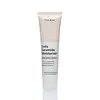What's inside
What's inside
 Key Ingredients
Key Ingredients

 Benefits
Benefits

 Concerns
Concerns

No concerns
 Ingredients Side-by-side
Ingredients Side-by-side

Water
Skin ConditioningGlycerin
HumectantCaprylic/Capric Triglyceride
MaskingPropylene Glycol
HumectantSqualane
EmollientSimmondsia Chinensis Seed Oil
EmollientHydrogenated Phosphatidylcholine
EmulsifyingButyrospermum Parkii Butter
Skin ConditioningCholesterol
EmollientCeramide NP
Skin ConditioningTrehalose
HumectantSodium PCA
HumectantUrea
BufferingGlyceryl Caprylate
EmollientPolyquaternium-51
Skin ConditioningHyaluronic Acid
HumectantTriacetin
AntimicrobialXanthan Gum
EmulsifyingCarbomer
Emulsion StabilisingTriethanolamine
BufferingEthylhexylglycerin
Skin ConditioningWater, Glycerin, Caprylic/Capric Triglyceride, Propylene Glycol, Squalane, Simmondsia Chinensis Seed Oil, Hydrogenated Phosphatidylcholine, Butyrospermum Parkii Butter, Cholesterol, Ceramide NP, Trehalose, Sodium PCA, Urea, Glyceryl Caprylate, Polyquaternium-51, Hyaluronic Acid, Triacetin, Xanthan Gum, Carbomer, Triethanolamine, Ethylhexylglycerin
 Reviews
Reviews

Alternatives
Ingredients Explained
These ingredients are found in both products.
Ingredients higher up in an ingredient list are typically present in a larger amount.
Hyaluronic acid is naturally found in healthy skin. It is a humectant, meaning it draws moisture to your skin.
This ingredient helps hydrate, soothe, and protect the skin.
What makes hyaluronic acid so hydrating? It has the capacity to bind or hold large amounts of water.
Fun fact: It is already naturally found in our bodies, such as the fluids of our eyes and our joints.
Studies find this ingredient to have anti-inflammatory and anti-microbial properties. This can help speed up wound-healing.
Hyaluronic acid can be irritating if the molecule has a low-molecular weight, or if the molecules are small.
One study found low-molecular weight hyaluronic acid to be pro-inflammatory, meaning some people may experience irritation. This is because our bodies use hyaluronic acid in the wound-healing process to signal to our bodies, via irritation, that something needs healing.
The same study found high-molecular weight hyaluronic acid to be anti-inflammatory.
These are some other common types of Hyaluronic Acid:
Learn more about Hyaluronic Acid